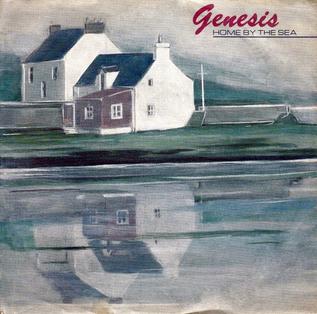So rich is the Italian prog scene of the Seventies that one could neglect more recent additions to our genre coming from the "Bel Paese". That would be sad, as many good bands carry on the progressive verb in Italy and among them I recommend today Logos and especially this song, coming from the album titled "L'enigma della vita". It's a rather long track going through many changes and including both traditional and new sounds.
It's a beautiful cover art, isn't it?
The acoustic intro and the dreaming electric guitar solo surely are classic features, but the ethereal, spacey mood of some keyboard backgrounds, the jazzy piano and the folk flavour of several guitar touches enrich the big picture. Some more strong points: beautiful and fully exploited melodies, pleasant vocals and rythmic changes. I do think you'll find even more listening to this song and you'll probably try the entire CD. Something tells me yo won't be deceived.







